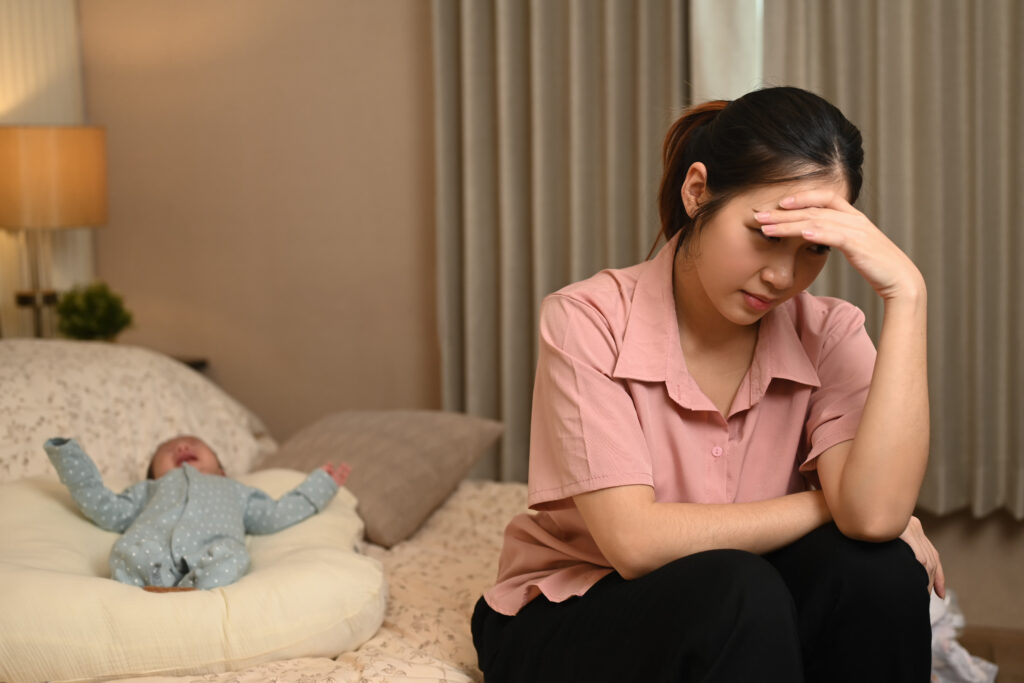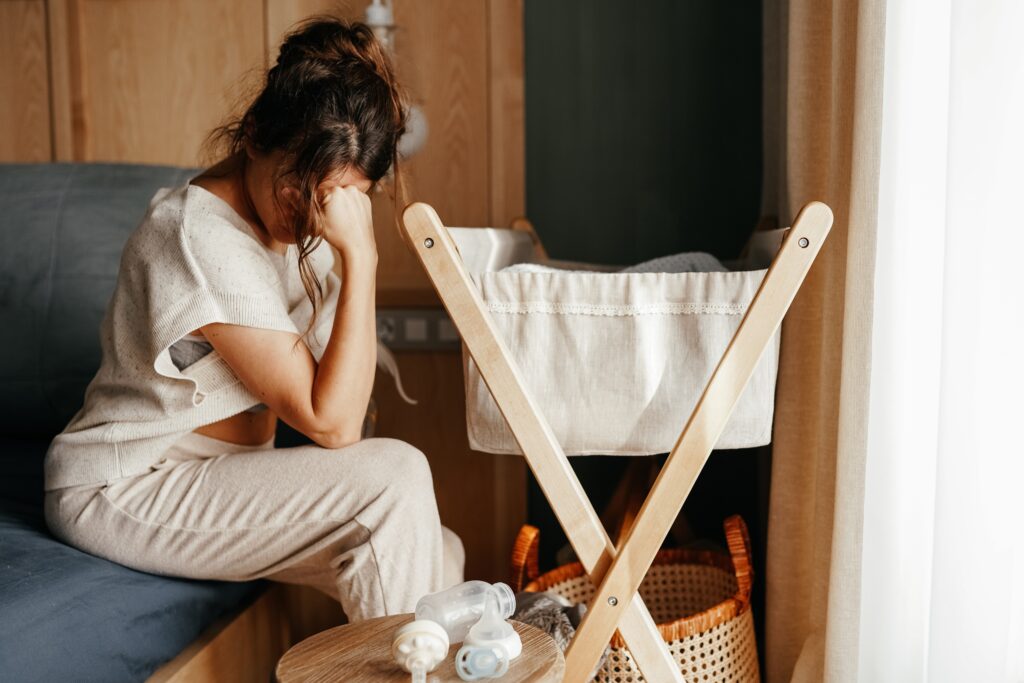The postpartum period is a time of immense joy, but it can also bring about unexpected challenges, including postpartum anxiety. Many new mothers experience intense worry, fear, or panic after childbirth. While medication is a common treatment for postpartum anxiety, some mothers may prefer to explore natural and holistic remedies. In this article, we’ll discuss various natural methods to help manage postpartum anxiety while also addressing the importance of medication when necessary.
Natural and Holistic Methods for Managing Postpartum Anxiety
- Mindfulness and Meditation: Practicing mindfulness and meditation can be powerful tools in managing anxiety. By focusing on the present moment and engaging in deep breathing exercises, new mothers can reduce feelings of stress and anxiety. Daily meditation, even if it’s just for a few minutes, can create a sense of calm and help in coping with the overwhelming emotions that often accompany new motherhood.
- Physical Activity: Regular physical activity, such as walking, yoga, or gentle stretching, can have a positive impact on mental health. Exercise releases endorphins, which are natural mood lifters, and can help reduce the symptoms of anxiety. Incorporating physical activity into your daily routine can also provide a break from the demands of caring for a newborn and offer some much-needed time for self-care.
- Nutrition and Hydration: A well-balanced diet is crucial for both physical and mental well-being. Nutrient-rich foods like leafy greens, nuts, seeds, and fish that are high in omega-3 fatty acids can support brain health and help manage anxiety. Staying hydrated is equally important, as dehydration can exacerbate feelings of anxiety and stress.
- Adequate Sleep: Lack of sleep is common in the postpartum period and can significantly contribute to anxiety. While it’s challenging to get uninterrupted sleep with a newborn, prioritizing rest whenever possible is key. Napping when the baby naps, seeking help from a partner or family member, and creating a relaxing bedtime routine can help improve the quality of sleep.
- Herbal Remedies: Some new mothers find relief from anxiety through herbal remedies such as chamomile, lavender, and valerian root. These herbs can be taken as teas, essential oils, or supplements, and are known for their calming properties. However, it’s essential to consult with a healthcare provider before using any herbal remedies, especially if you are breastfeeding, as some herbs can affect milk supply or be passed to the baby through breast milk.
- Support Systems: Connecting with other new mothers, whether through support groups, online communities, or in-person meetups, can provide emotional support and reduce feelings of isolation. Sharing experiences and coping strategies with others who understand what you’re going through can be incredibly reassuring and help alleviate anxiety.
Simple Meditation Practices for New Moms
- Find a Quiet Space: Choose a peaceful spot in your home where you won’t be interrupted. This could be a corner of your bedroom, a cozy chair, or even a spot in your garden.
- Focus on Breathing: Sit comfortably, close your eyes, and take slow, deep breaths. Inhale deeply through your nose, hold for a count of three, then exhale slowly through your mouth. Continue this breathing pattern for 5–10 minutes, focusing solely on the sensation of your breath.
- Use Guided Meditations: If you’re new to meditation, guided meditations can be very helpful. These can be found in apps or online, offering audio sessions that guide you through relaxation and anxiety relief exercises.
- Practice Mindfulness in Daily Tasks: Incorporate mindfulness into your routine by focusing intently on simple, everyday tasks. Whether you’re feeding your baby, washing dishes, or sipping a cup of tea, pay attention to the sights, sounds, and sensations of the moment, fully immersing yourself in the experience.
Effective Physical Activities for Postpartum Anxiety Relief
- Walking: Walking is one of the easiest and most effective exercises you can do. A daily walk, even if it’s just around your home or neighborhood, helps clear your mind and provides a gentle form of exercise.
- Yoga: Postpartum yoga is tailored to new mothers, focusing on gentle stretches, breathing exercises, and poses that strengthen your body while calming your mind. It’s an excellent way to restore balance and reduce anxiety.
- Pelvic Floor Exercises: These exercises, like Kegels, help strengthen your core and pelvic muscles, which can be weakened during childbirth. Stronger core muscles can also improve your overall posture and reduce physical stress, contributing to lower anxiety levels.
- Swimming: If you have access to a pool, swimming provides a full-body workout that’s easy on the joints. The soothing nature of water combined with physical activity can be very relaxing.
- Light Aerobics: Engage in light aerobic activities such as dancing or stationary cycling. These activities get your heart rate up, improving your mood and energy levels without the need for intense exercise.
- Baby & Me Workouts: These workouts incorporate your baby into the exercise routine, allowing you to bond while staying active. Many classes and online resources offer guided sessions that include movements both you and your baby can enjoy, making exercise fun and stress-relieving.

The Role of Medication in Postpartum Anxiety
While natural remedies can be effective for some, it’s important to recognize that medication may still play a crucial role in managing postpartum anxiety, especially in more severe cases. Anxiety disorders are complex, and for some new mothers, natural remedies alone may not be sufficient to alleviate symptoms.
Medication, when prescribed and managed by a healthcare professional, can be a vital part of a comprehensive treatment plan. Antidepressants, such as SSRIs, are often used to treat postpartum anxiety and have been shown to be effective in reducing symptoms. However, the effectiveness of medication is heavily dependent on a proper treatment plan that includes regular follow-up sessions with a healthcare provider. This ensures that the medication is working as intended and allows for any necessary adjustments to be made.
Rural Hub Psychiatry Services: Contact Us for Appointments!
Bridging Natural Remedies and Medication
For many new mothers, the best approach to managing postpartum anxiety may be a combination of natural remedies and medication. Holistic methods can complement traditional treatments, creating a balanced and personalized plan that addresses both the physical and emotional aspects of anxiety.
It’s crucial to work closely with a healthcare provider to develop a treatment plan that suits your individual needs. By combining the benefits of natural remedies with the effectiveness of medication, new mothers can find relief from postpartum anxiety and enjoy a more positive and fulfilling postpartum experience.


